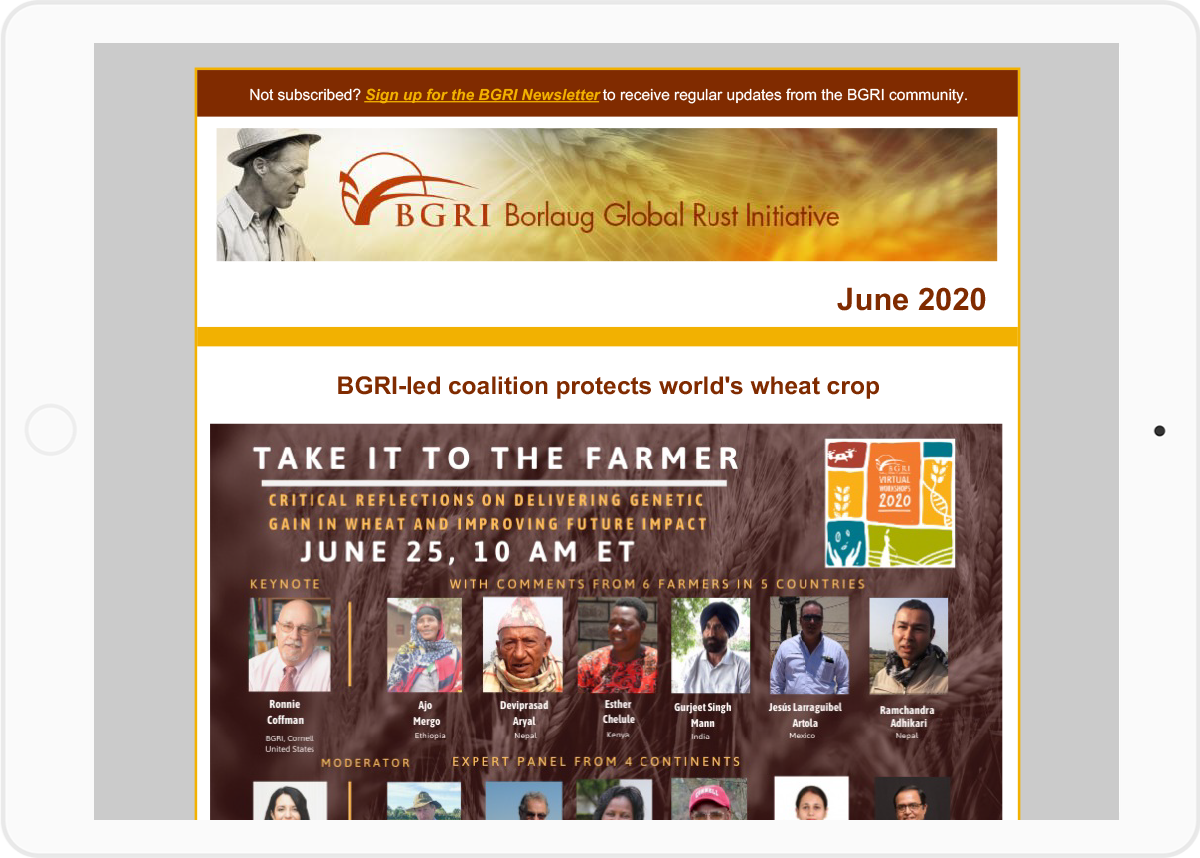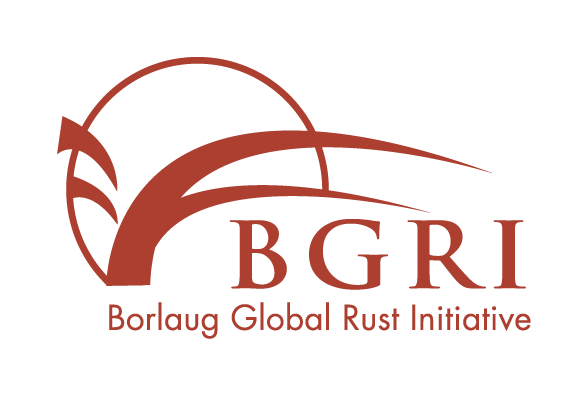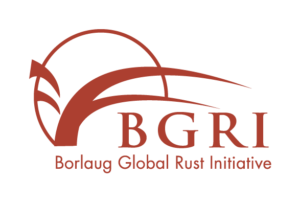Wheat researchers and farmers have made significant progress over the past 12 years delivering on the promise of greater food security and nutrition globally. But there is still much work to be done.
The Borlaug Global Rust Initiative (BGRI) will hold an interactive virtual event “Take It to the Farmer: Reflections on Delivering Genetic Gain in Wheat” on June 25 from 10-11:30 a.m. EDT. The event will present a series of reflections on what it means to deliver genetic gain in wheat to farmers and ways to improve the future impact of wheat research.
“Take It to the Farmer” is the second in a series of virtual events from the BGRI. The June 25 event will feature videos from wheat farmers in the United Kingdom, Kenya, Ethiopia, Nepal, India and Mexico as they discuss particular challenges they face in their countries, as well as discussions with leading wheat experts about the impact of the Durable Rust Resistance in Wheat (DRRW) and Delivering Genetic Gain in Wheat (DGGW) projects. Both projects received funding from the Bill & Melinda Gates Foundation and UK aid from the UK government.
“Over the last 12 years, wheat researchers have learned that it is not enough to have great research innovations and hope they make their way to farmers’ fields,” said Maricelis Acevedo, associate director for science for the DGGW project. “For agricultural innovations to make it the last mile into farmers’ fields, we have learned that is necessary to talk to the farmers, listen to the farmers, and work directly with the farmers. We are leveraging public-private partnerships, and tracking and exchanging germplasm across international boundaries in the ongoing fight to protect the world’s wheat.”
Bill Angus, principal of Angus Wheat Consultants Ltd and panelist in the June 25 event, said that collaboration is critical as the world engages with growing challenges to wheat production: “The UK is currently a yellow rust hotspot for evolving races of rust. With the BGRI, F1 Seed Ltd and CIMMYT, we are working to transfer resistance genes available in CIMMYT lines to UK germplasm and vice-versa. Our objective is to strengthen the wheat germplasm pool and optimize the use of resistance genes,” he said.
Angus added: “Researchers need a better understanding of what disease resistance genes we are using globally and then develop robust utilization strategies with seed companies to give wheat growers long-term security and options to combat ever-evolving races of rust. This is a great example of how public and private sectors can work together.”
Ronnie Coffman, BGRI vice-chair and director of International Programs in Cornell’s Department of Global Development, will provide the keynote address, “Impact of the Durable Rust Resistance in Wheat and Delivering Genetic Gain in Wheat Projects: 12 Years of Research and Variety Adoption.” Coffman is the Andrew H. and James S. Tisch Distinguished University Professor and international professor in the Department of Global Development and School of Integrative Plant Science.
Acevedo will host a panel discussion on evolving partnerships and ways to improve access to new technologies and improved wheat varieties.

Written by:
Matt Hayes
Associate Director for Communications
Matt Hayes is a strategic communications expert and content strategist with experience in international agriculture, food security, global development and higher education. He manages all communications and marketing efforts for the Department of Global Development and a portfolio of more than two dozen programs and projects totaling $185+ million in funding.






